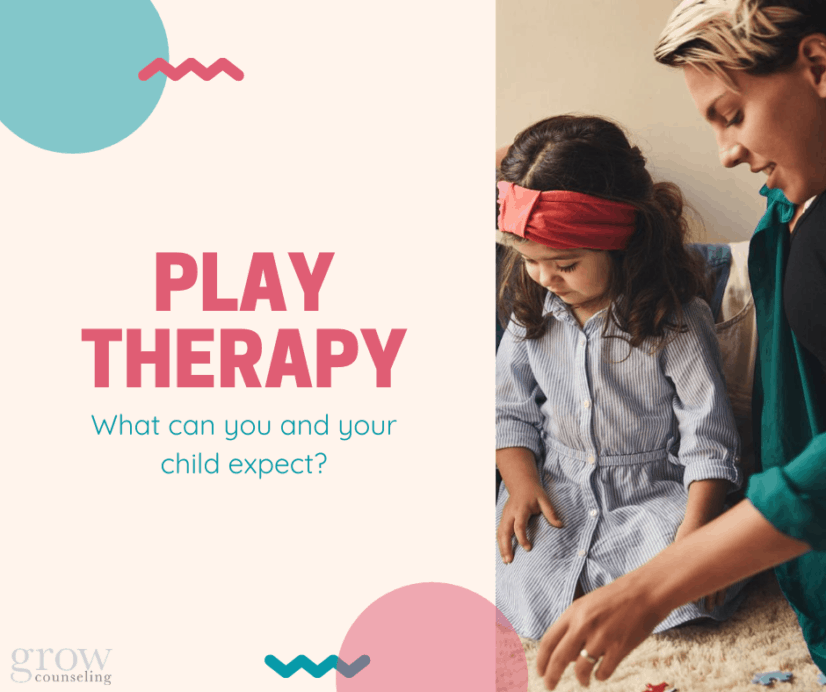In Part 1 of “Why Play Therapy,” we discussed play and the brain, what play therapy is, and how play therapy can benefit your child. Now that you’ve decided play therapy is the best option for your child, we will explore what you and your child can expect moving forward.
Where Can I Find a Play Therapist?
Play therapists are licensed mental health professionals who have earned a Master’s or Doctorate degree in the mental health field and have obtained a considerable amount of postgraduate clinical experience and supervision. Play therapists include professional counselors, psychologists, marriage and family therapists, clinical social workers, clinical school counselors, and clinical school psychologists. The credential RPT (Registered Play Therapist) and RPT-S (Registered Play Therapist Supervisor) delineate licensed professionals who have obtained additional post-graduate education, training, and supervised experience in the field of play therapy.
Additionally, there are licensed clinicians who are undergoing intensive supervision and training as they pursue their RPT credential. In order to find a play therapist for your child, look for RPT, RPT-S or a licensed clinician who is pursuing the RPT credential and undergoing clinical supervision. Fortunately, there are many therapists at GROW Counseling who are well-versed in play therapy and have extensive post-graduate training and supervision.
What Can I Expect During My Child’s Play Therapy Session?
During your first meeting with your child’s play therapist, an intake interview will be conducted. You will be asked questions about your child’s development, current functioning, and presenting problem. Many play therapists will also complete a separate intake with your child in order to get a complete sense of the problem and to help your child feel more engaged in treatment.
The play therapist may conduct an assessment depending on the presenting problem. The assessment may range from very simple (having you complete a short questionnaire) to more complex (formal testing). The assessment process provides the play therapist with more information about your child and the best way to treat them. Assessment is an ongoing process and can also help the play therapist monitor your child’s progress.
The play therapist will then begin engaging your child in play therapy. Play therapy sessions can look very different depending on presenting problems, the clinician’s training, and the uniqueness of your child. Your child may transition easily into session. Other times, it may seem like the problem is getting worse. This is very normal and typically temporary. Your play therapist will conduct regular parent sessions with you in order to address concerns, gather information, and give you an idea of what to expect from your child. The play therapist may recommend additional family counseling sessions or other things for you to do to help support your child.
How Long Will My Child Be in Play Therapy?
This is a common question I hear from parents. Every child and problem is unique and it’s hard to give parents a set time-frame from the beginning of treatment. It’s important for the clinician as well as the parent to remain flexible and allow the child the space and time to work through problems at their own pace. I typically tell parents, “The Slower the Change, The Longer it Lasts.” During parent sessions, your play therapist will keep you updated on progress and what to expect. The wonderful thing about Play Therapy is the treatment is easily adaptable to your child, the pace they feel comfortable working, and their unique needs.
How to Support Your Child While They Are in Play Therapy
No matter the course of your child’s treatment in play therapy, you will play some very important roles. The play therapist will rely on you to help determine how well your child is progressing and to report any changes as they arise. The play therapist may ask you and other family members to participate by reading books, completing “homework” assignments, becoming involved in an actual session, or participating in family counseling. This is a great way for you, your child, and the play therapist to work together. Your play therapist will also work with you during parent sessions on specific ways to support your child between sessions. You are the most important person in your child’s life and play therapy can never replace the support you are there to provide.
Play therapy can be beneficial for any child. At GROW Counseling, our focus is on the general wellness of your child, whether that means your child has experienced severe trauma or loss, is dealing with behavioral issues, struggling with stress anxiety, ADHD, or you are just wanting a safe space for your child to process the uncomfortable parts of growing up.
Written by: Kelsey Ondriezek

